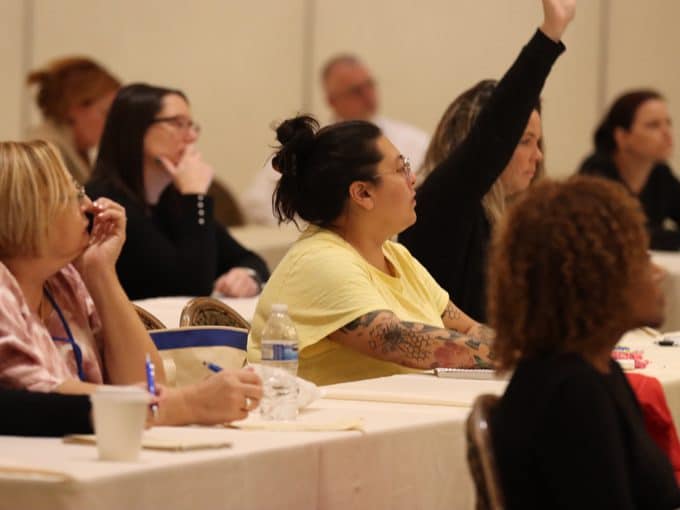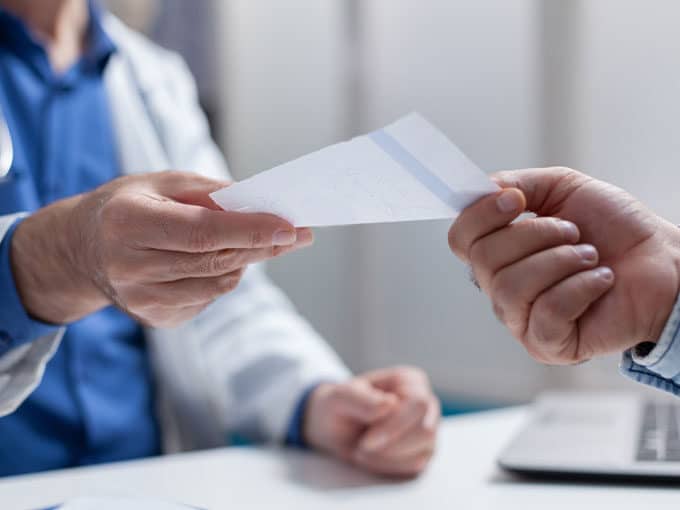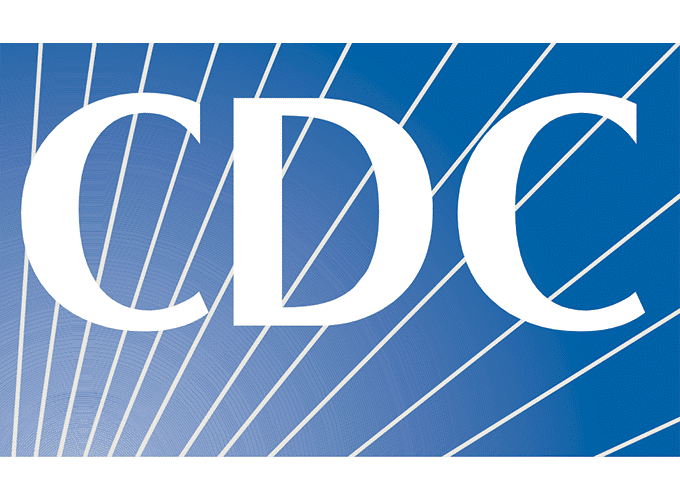
Share Your Expertise at the NCCHC Spring Conference on Correctional Health Care
Help shape the future of correctional health care.
Home Coping with COVID-19 in the New Year
 Dec 31, 2020
Dec 31, 2020by Joseph V. Penn, MD, CCHP-MH
As we bid farewell to 2020 and welcome 2021, I hope that you are feeling encouraged by the arrival of the COVID-19 vaccine. It promises to be a game-changer. But since it will probably take several months to roll out and it is unclear when incarcerated populations will receive the vaccine, coronavirus is still very much with us… and continues to take a toll on our emotional and mental health. Here, I present some practical ideas on how to honor yourself and take care of you in the new year.
There is growing literature on the physiological impact of acute and chronic stress. Prolonged and excessive stress leads to burnout, and we all know that feeling: emotionally exhausted, irritable, unfulfilled, maybe cynical, and not caring.
When you’re burned out, you’re less empathic and less efficient; you feel less joy in your everyday activities at work and at home. You might have trouble concentrating, trouble sleeping, trouble remembering why you chose this career in the first place. You might be self-medicating with alcohol, engaging in over-eating or other destructive behaviors. If you are having depressed mood, overly negative or intrusive thoughts, hopelessness, worthlessness, suicidal thoughts, or thoughts that life is not worth going on, please seek professional health immediately.
There are many things in life that we cannot control, and lately, we may feel even more vulnerable and limited.
And while neither the dangers of COVID nor the challenges of working in corrections is apt to change any time soon, doing even small things to regain a sense of control can be extremely helpful and reduce feelings of helplessness. There is nothing like preparation to create a sense of control. And the added benefit is: you’ll be prepared.
For starters, take care of your physical health; it’s strongly connected to your overall well-being. The stress and strain takes a toll on our bodies.
If you haven’t yet done so, GET A FLU SHOT. Vow to do that this week.
Take preventive measures and eliminate any nagging health issues. Refill your prescriptions.
Find a way to move your body every day. I know this is not a challenge for those in direct patient care, but due to computers and EMRs, it is way too easy to become and remain sedentary.
Watch how much you eat and drink. Indulging feels good… until it doesn’t.
If you’re anxious or worried, turn that restless energy around and point it toward something useful, productive, and practical. Start small, and take baby steps.
Eliminate some minor but irritating matters in your life, such as organizing your living space so you’re no longer searching for your keys every day. Change a small but persistent source of frustration in your life – one you do have control over – and take care of it. Confirm today that you will make repairs, get rid of unnecessary stress and annoyances.
Think specifically about your day-to-day habits, comforts, and pain points. What might make you feel good? Consider improving your workspace or home to make it more relaxing and functional. Ask yourself if you really need to respond to every text or email immediately. We need down time to disconnect from screens and get off the grid.
We have been forced to spend many months with limited social support. This lack of in-person social connectivity and isolation has caused severe distress for many people. We humans are social animals. Social connections are integral and critical to our emotional well-being.
I’ve noticed that people have stopped making as much effort to connect, even virtually, as they did at the beginning of the quarantine last spring. I strongly encourage you to reconnect with friends and get back to Zoom visits, write someone a letter, call an old friend or relative. This is more important than ever now. It’s prohibitive for many people to socialize, and the longer we remain isolated, the greater the risk of depression.
Maybe now is the time to find or reconnect with friends, perhaps an old friend you’ve lost touch with, peers, faith/clergy, family, or a mental health professional. Do it before you’re too exhausted or depleted to do it later.
At work and elsewhere, show empathy. Listen more. Avoid rumors. Seek out information. Get the answers you need. And know that more media = more stress. Ten to 15 minutes a day with a trusted news source is enough to keep you informed but not send you over the deep end into anxiety-producing speculation or conspiracy theories.
Change the channel! Music is always available to make you feel better. A lot of people have been making and sharing playlists, which I think is a great idea.
And don’t forget to laugh every day. A sense of humor can keep us going. If there is a show that makes you laugh, binge-watch it, and share it with family and friends. I enjoy some of those mindless reruns and old movies that give me a welcome break from the day.
My intention is not to imply that everyone is depressed or distressed, but to give you some emotional wellness strategies to help you get through this marathon, and you will! This is temporary, and some day we will look back on it as we resume our freedom and happier lives.
In the meantime, remember that we are all experiencing this difficult and challenging time, and some do not cope well. You may notice that those around you are more edgy, irritable, or angry than usual, more nervous and anxious, more depressed, sad, or hopeless.
Cut them some slack. And while you’re at it, cut yourself some slack too. Don’t be too hard on yourself. In fact, pat yourself on the back! We all deserve to show ourselves care and compassion. Borrow skills if needed. Show and model empathy; smile at others, as your smile shows through and beyond the mask; and don’t forget to flash that beautiful smile at yourself in the mirror.
Finally, give yourself permission to daydream about the future and what is on the horizon. Things will return to “normal.” And possibly better, with some welcome improvements.
We are learning more about this virus every day, so continue your noble work, stay strong and hopeful. This too shall pass.
Joseph V. Penn, MD, CCHP-MH, is the 2021 chair of the NCCHC Governance Board and board liaison of the American Academy of Psychiatry and the Law.
This column is an excerpt of a speech he gave at the 2020 National Conference on Correctional Health Care. To view his talk in its entirety, go to the NCCHC YouTube channel.


